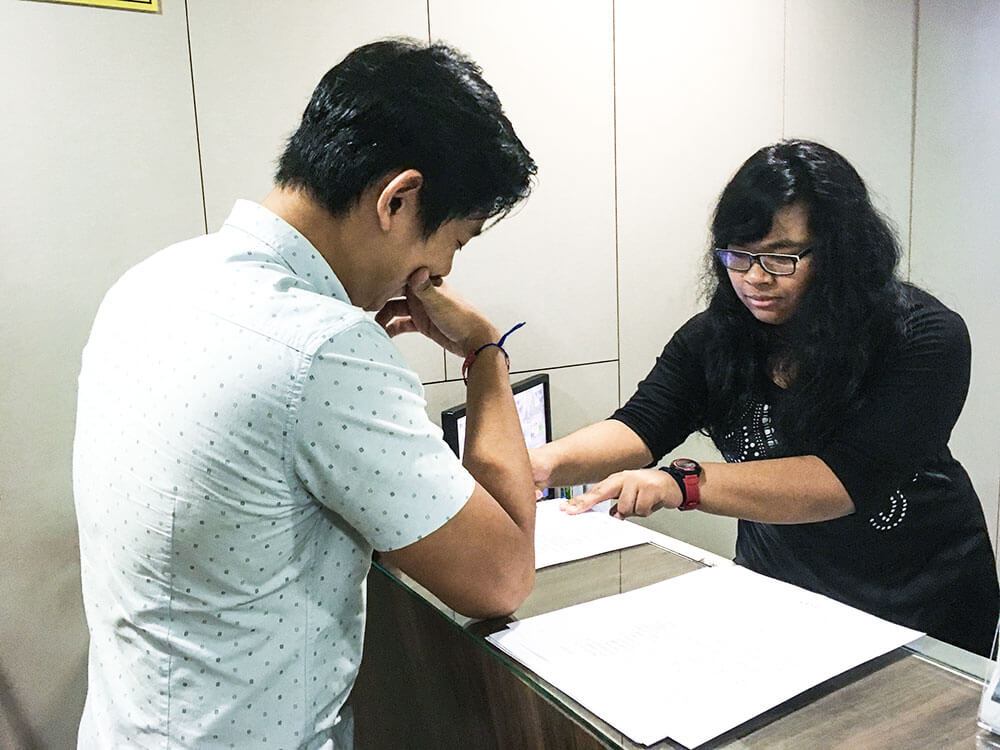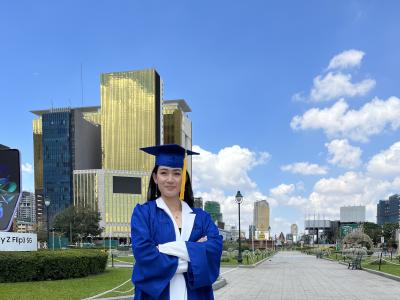
The spirit of volunteerism is more evident than ever, especially amongst millennials. Contrary to self-centred stereotypes, when it comes to choosing a career path, millennial graduates are often just as likely to look for a profession with purpose which offers the opportunity of making an impact than one that brings in a high salary.
One such millennial is SMU School of Law undergraduate Susanna Abigail Yim, who is a volunteer at the Pro Bono Services Office. Susanna has also been volunteering at the Singapore Red Cross since 2015 and was formerly president of the SMU Red Cross. More recently, she was awarded the Soka Association (SSA)-Ikeda Peace award in recognition for her commitment to the spirit of volunteerism. We asked her to tell us more her pro-bono work.

SMU: Hi, Susanna! Could you share with us how you became involved in pro bono work as you embarked upon your undergraduate studies?
Susanna: I signed up for pro bono through the SMU Pro Bono Centre. If not for the 20-hour pro bono work requirement of SMU’s Bachelor of Laws programme, I probably would not have ventured into it and instead would have only stuck to volunteering elsewhere. The requirement forced me out of my comfort zone.
SMU: What’s a typical session at the legal clinic like? What kind of cases do you see and who, typically seeks your help?
Susanna: Consultations are by appointment. Walk-ins are rare but when they come we do our best to guide them as much as we can in their search for legal aid. The applicants get to consult volunteer lawyers for 20-minutes, during which the volunteer lawyer gives the applicants guidance as to what to do next.
The applicants are usually individuals who have never had brushes with the law before, and are therefore in great need of some guidance. Applicants have all kinds of needs—we see cases ranging from family issues to criminal proceedings and even employment matters.
SMU: Is pro bono work always rewarding? Can it be stressful too?
Susanna: Pro bono work is rewarding as you can see the impact you create by being a small gear in the wider mechanism of justice. Usually, the individuals who turn to the legal clinics for help are very grateful for the guidance and comfort provided. Nevertheless, it can definitely be stressful too. Sometimes the applicants are caught up in very complex matters and finding solutions can be challenging.
SMU: How has your pro bono work helped in your professional development?
Susanna: Managing the legal clinics has allowed me to interact with the volunteer lawyers. This helps in that I get to know more about their firms, about the practice of the law in general and most importantly how they balance their billable work with their pro bono work. While I am not sure if managing clinics will definitely land me my dream job, I think that it will definitely give me a clearer picture of the legal industry and potential jobs.
SMU: What additional skills have you acquired through volunteering that you would not otherwise have learnt?
Susanna: I have definitely learnt how to manage people’s expectations better. Many times, what makes an applicant’s experience at the clinic a positive one is to manage their expectation from the get-go so that they do not end up disappointed. And another one of the perks of managing clinics is that I get to meet fellow law students from SMU, NUS and overseas universities.
SMU: Some students would argue they’re too busy preparing for exams to volunteer—what would you say to them?
Susanna: Time management is tricky, especially in university where you have so many things happening at the same time. But if something is important, you just have to make time for it. I update my calendar regularly and always rank my commitments according to their importance. This way, I avoid overcommitting and wearing myself out.

SMU: Tell us more about the SSA-Ikeda Peace award—what does it mean to be recognised in this way?
Susanna: The SSA-Ikeda Peace Award is given to recognise students who are committed to the spirit of volunteerism. It definitely is a huge honour to be recognised this way as the SSA is one of the foremost organisations dedicated to the betterment of the community, itself having been awarded the Community Partnership Merit Award just recently.
SMU: How will the experience of winning the award help you in the future?
Susanna: Winning the award will definitely go a long way towards personal development. I hope to go on and take up language courses to improve my grasp of Mandarin and Bahasa Melayu so that I can become a more effective communicator in the community. I definitely intend to continue pro bono work and I am excited to delve deeper and help out at other legal clinics.
SMU: What do you think is the value in volunteering overall, particularly for student volunteers?
Susanna: Volunteering has allowed me to see what needs there are that need to be met—most of these I would be unaware of if not for the exposure. I think it makes most students realise that there is so much going on in our society outside of our own lives, and more importantly, that we can do something to alleviate these problems.


